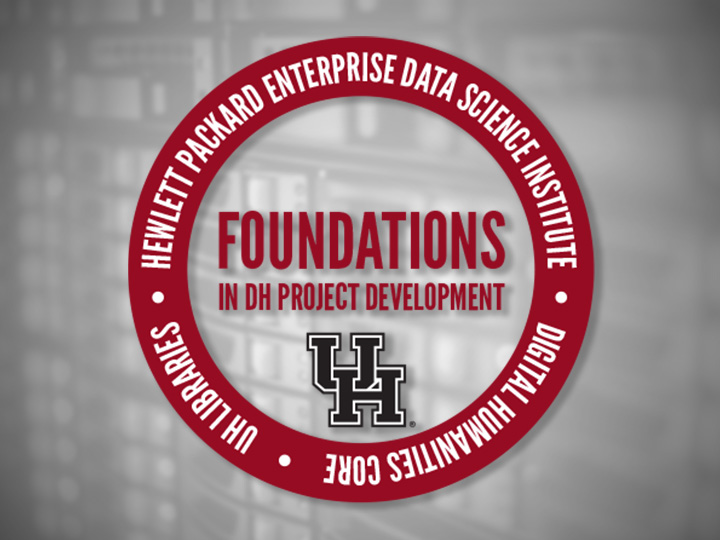
Supported by the Division of Research, the HPE Data Science Institute and UH Libraries, the DHC facility’s new micro-credentialing program is unique in the nation. Led by Linda García Merchant, Ph.D., the program empowers researchers to expand their knowledge of data modeling and management, digital scholarship, planning grant writing and publication.
“Primarily supporting digital research in the humanities, the DHC facility capitalizes on what I feel is true about UH in general – there is a willingness to innovate, a culture that reimagines problems and finds solutions, and a community of motivated researchers to carry out the work,” said García Merchant.
The front end result of Digital Humanities projects is publication, but the back end involves building the infrastructure that organizes a researcher’s materials. Addressing a critical gap in pre-project planning, the new program focuses on four project aspects: ideation, project planning, prototype creation, and turning prototypes into sustainable models. García Merchant notes the importance of imparting practical skills to researchers for creating manageable and enduring projects over time.
The DHC facility bridges humanities and STEM domains, fostering collaborations in various forms, such as data visualization or non-traditional outputs like curated critical analyses. Notably, the UH: Sharing Our Stories repository presents primary sources from the 1977 National Women’s Conference.
Three micro-credential badges are awarded sequentially as students progress through the courses. The first badges were given out to the program’s inaugural cohort after a 10-day intensive, which included an overview of Digital Humanities, as well as project plan ideation, understanding data and labor management and process development components.
The second half of this intensive helps to teach researchers to write and submit proposals for internal and external awards. The curriculum for the second and third badges is forthcoming.
García Merchant is encouraged by the program's initial reception by the UH community and excited to explore new ways of articulating concepts and processes, extending beyond traditional scholarship. She emphasizes complementary avenues to knowledge dissemination, allowing for interaction between conventional scholarship and innovative dialogue, ultimately broadening the audience for scholarly work.
“Of course we need to write books, but we can also create dialogue between traditional and non-traditional scholarship. This program teaches researchers to see the points of discoverability between the two.”